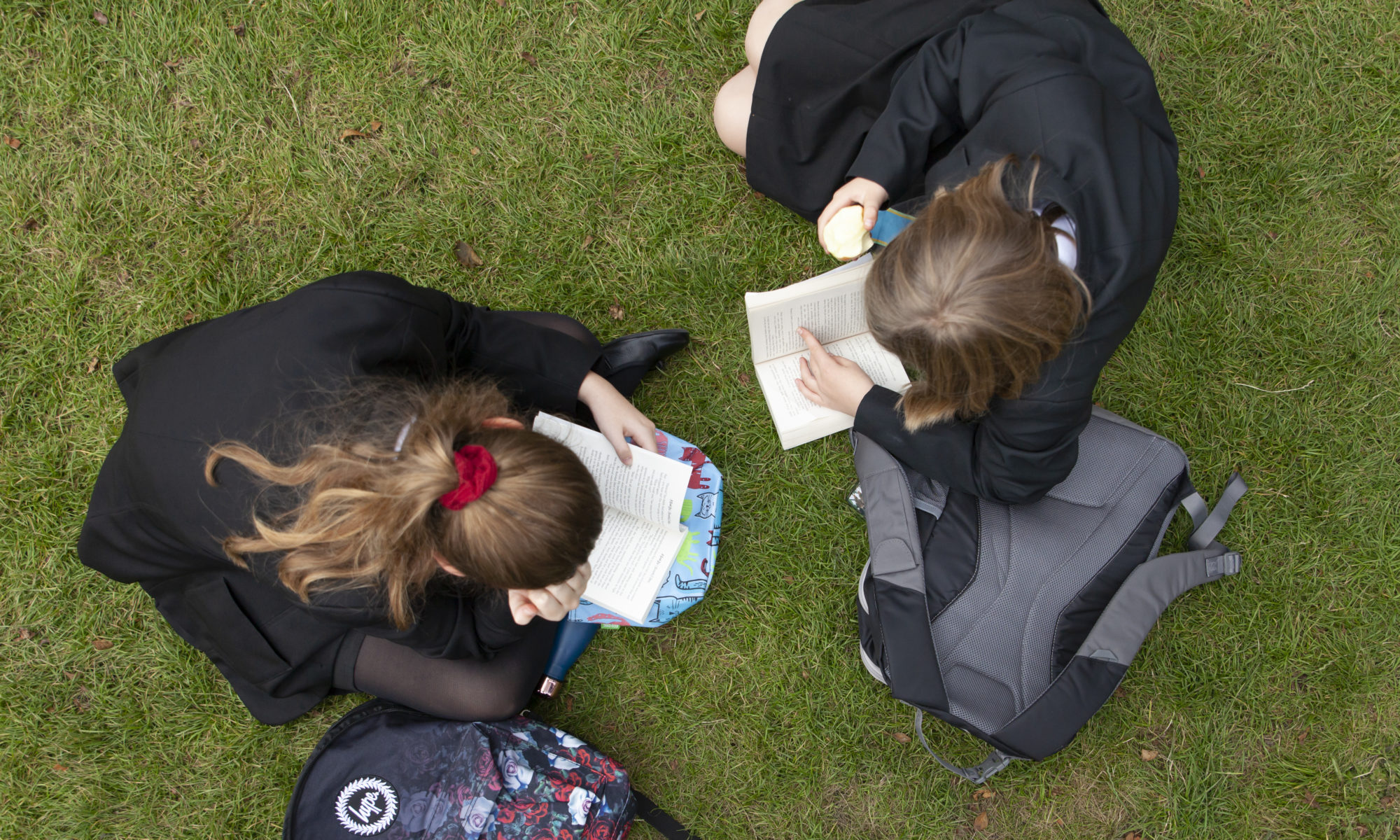The world is a pretty uncertain place at the moment. Schools are closed, there are limited places to go, it’s more difficult to see our friends, and it might feel like we’re constantly living in front of a screen. It can be easy to feel overwhelmed and stressed.
We’ve pulled together our top 5 tips to build resilience and keep on top of your mental health and, no surprise, a lot of them involve reading, writing and creativity!
Read:
We’re, obviously, strong believers in the amazing power of reading to help you feel better. And a little bit of escapism has never felt more important than during a global pandemic! While reading you’re actively engaged in the process of creation, of imagining the setting and characters of the book, unlike passively watching tv, so reading really can transport you to another time and place.
Our advice is: read exactly what you want to! Tat might be the 50th book by your favourite author; a book you’ve read over and over again; a book you loved when you were younger that you find comforting; or something completely new that sounds interesting to you. There is no ‘wrong’choice when it comes to reading. A great way to discover new books is visiting a website of an author you already love and seeing what books they like to read. Some of our recent favourites include Bearmouth by Liz Hyder, Black Famingo by Dean Atta and anything by the wonderful Juno Dawson.
Did you know many libraries are also still offering free click and collect borrowing services? Find your local library online to see how to order, collect and return books safely.
It’s Good to Talk:
It’s hard to meet up in real life at the moment and a lot of us are guilty of spending time commenting and sharing on social media, which can often lead to us feeling more lonely, rather than focussing on proper interaction with friends and family. Put some time aside to have a proper conversation, whether that’s on a walk, via zoom or even on the telephone (#oldskool.) If you’re running out of things to say (I mean, we’re all not actually doing much!) then why not try reading the same book and then chatting about it – did you both enjoy it? Did you have favourite characters or characters you couldn’t stand? What else could you read or watch together?
Write:
If your mind feels like a busy, stressful place at the moment then writing your thoughts down can really help you explore your feelings and gain some clarity. Practices such as free writing or journaling can be really useful (follow the instructions in Part 2 Exercise 1 here), or try these short writing prompts by poet Leyla Josephine and YA author Juno Dawson.
Get Crafty:
Focussing on making something can really help you feel productive and calm your mind. Follow this simple tutorial by writer Claire Askew to make your own zine.
If you don’t quite feel up to the task of a big creative project, then why not do some colouring-in instead? The simple, mindful process can be really restorative – taking you back to your childhood and helping you relax. Illustrator Eilidh Muldoon gives you some tips in this DrawAlong and she kindly also drew some beautiful illustrations of the Book Festival to get you started.
And if you don’t feel much of an artist yourself, there’s no need to even pick up a pen – sometimes just watching someone else draw can be therapeutic. This beautiful video of author and illustrator Dunja Jogan painting set to calming music (8 minutes into the event) – for example, we find totally mesmerising and soul-soothing.
Get outdoors:
You can’t underestimate the power of fresh air and a change of scenery to clear your head. If you need some inspiration to get more active and setting yourself fun and adventurous challenges (once we’re safe to adventure again, of course), then we recommend watching Lily Dyu and Helen Skelton’s Get Adventurous event recorded during the 2020 Book Festival, as they tell the fascinating stories of some amazing real-life superheroes.
Did you know that lots of events from past Book Festivals are now available to listen to on Spotify? The perfect listening accompaniment to your daily walk!
Try to be positive:
It can seem really difficult at times but trying to keep a positive mindset – focussing on what you can do and the positive things in your life – can really help. This might also mean limiting your social media or news intake, if you find those things make you feel more anxious.
In this life-affirming event from our 2018 Festival, comedian Susan Calman talks about how she tries to put joy and kindness at the forefront of her own life.
Links:
If you’re struggling with your mental health then please don’t forget that there are organisations who can help you. Please get in touch with one of the organisations below, or speak to your GP.
